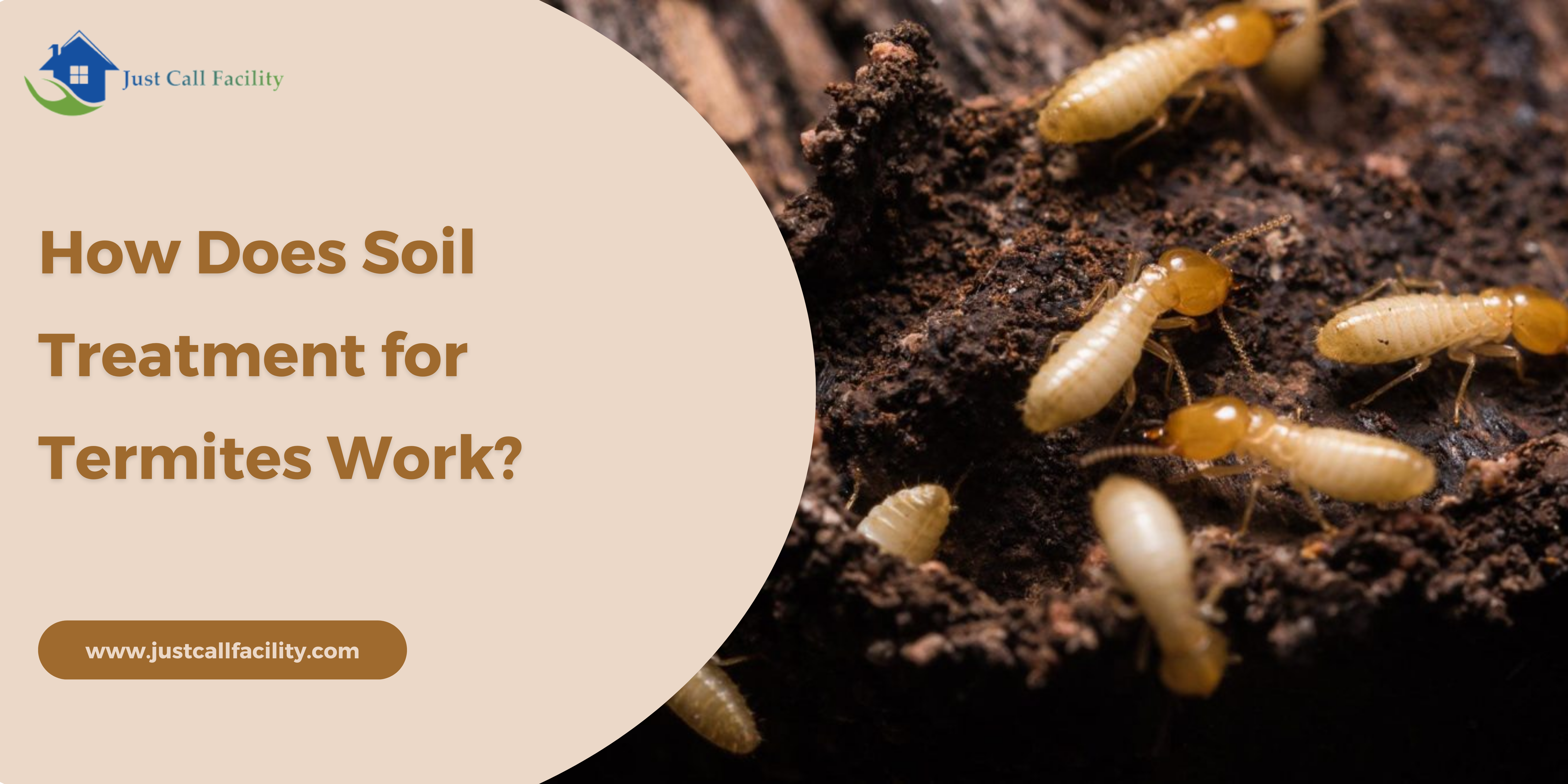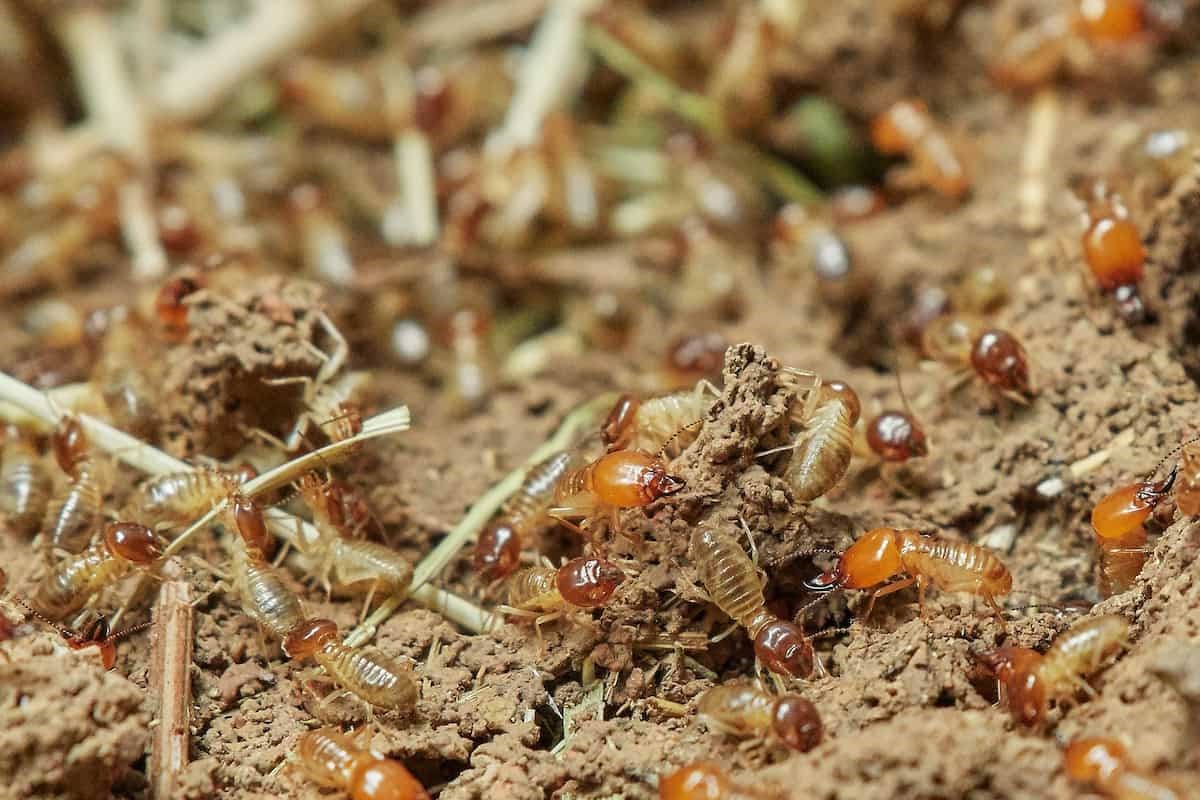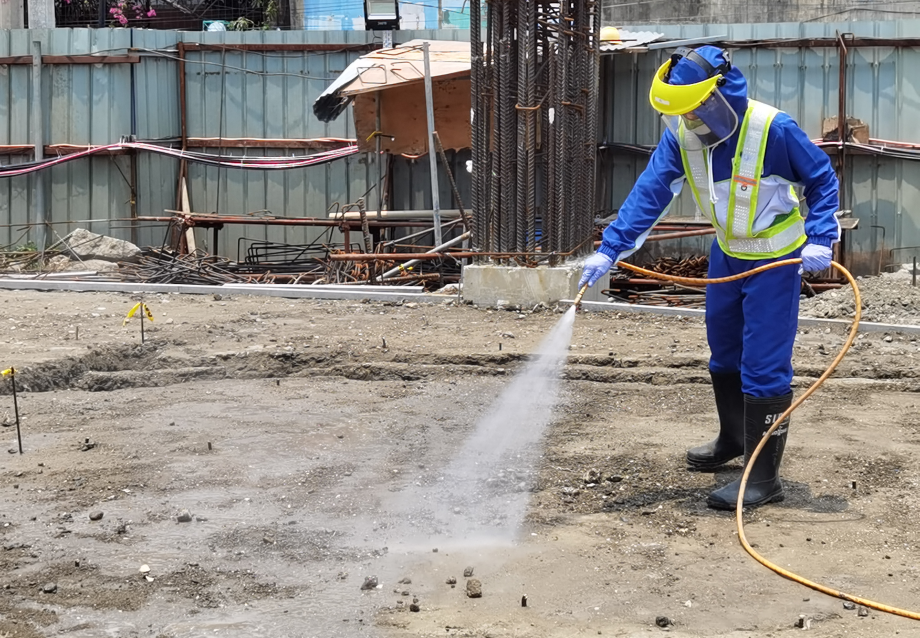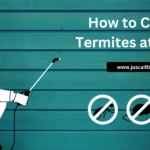Termites can wreak havoc on your property, causing extensive damage and financial strain. As one of the most destructive pests, they silently feast on wooden structures, weakening the very foundation of your home. Fortunately, there's a powerful weapon in the fight against termites—Soil Treatment. In this blog, we dive into the world of Soil Treatment For Termites, exploring its benefits, process, and the crucial role it plays in safeguarding your property.
Soil Treatment For Termites: An Overview
Soil Treatment for Termites is a preventive or curative measure aimed at protecting buildings and structures from termite infestations. It involves applying termiticides directly into the soil around the foundation of a property, creating a barrier that termites cannot penetrate. This treatment is highly effective in deterring termites from entering and damaging the structure.
Process of Soil Treatment for Termites
Here is the process of Soil Treatment for Termites, from initial inspection to preventive measures, to defend your property against these destructive invaders.
1. Inspection and Assessment:
The first step in the soil treatment process for termites involves a thorough inspection of the property by trained Termite Control Professionals. They assess the extent of the termite infestation, identify vulnerable areas, and determine the most suitable treatment approach.
2. Soil Preparation:
Before applying any treatment, the soil surrounding the infested areas needs to be prepared. It involves clearing debris, vegetation, and any other obstacles that might hinder the treatment's effectiveness.
3. Selecting the Treatment Method:
Based on the assessment results, the pest control experts choose the most appropriate treatment method. Common methods include liquid termiticides, termite baits, or a combination of both, depending on the severity of the infestation and the property's specific needs.
4. Monitoring and Follow-up:
After the soil treatment, regular monitoring is essential to ensure its effectiveness and track any new termite activity. Pest Control Experts perform follow-up inspections and maintenance, making adjustments to the treatment plan if necessary.
5. Preventive Measures:
In addition to the treatment, implementing preventive measures is crucial to reducing the risk of future termite infestations. These measures may include maintaining proper drainage, addressing moisture issues, sealing entry points, and using termite-resistant building materials.
Through a comprehensive process of inspection, preparation, treatment, and ongoing monitoring, soil treatment for termites aims to protect properties from these destructive pests and provide long-term peace of mind for homeowners and businesses.
Benefits of Soil Treatment for Termites
This approach offers numerous benefits, including effective termite control, long-lasting protection, environmentally friendly options, and the preservation of property value. By implementing this preventive measure, homeowners can safeguard their homes, save on repair costs, and ensure a termite-free environment for years to come.
1. Effective Termite Control:
Soil Treatment for Termites is a highly effective method to control termite infestations. When termiticides are applied to the soil around a building's foundation, they create a barrier that prevents termites from entering the structure. The termites come into contact with the treated soil, and the chemicals eliminate or repel them, protecting the building from potential damage. This proactive approach can prevent termite infestations before they even start, saving homeowners from costly repairs and property damage.
2. Long-lasting Protection:
One of the significant benefits of soil treatment for termites is its long-lasting protection. Depending on the type of termiticide used, the treatment can remain effective for several years. This long-term protection ensures that the building remains safeguarded against termite attacks, providing peace of mind to homeowners and reducing the need for frequent reapplications.
3. Environmentally Friendly Solutions:
Modern soil treatment options for termites often include environmentally friendly and low-toxicity termiticides. These solutions are designed to have minimal impact on the environment and non-target organisms, making them a safer choice for homeowners and their surroundings. Eco-friendly termiticides are an ideal option for those concerned about the ecological impact of chemical treatments.
4. Preserves Property Value:
By investing in Soil Treatment for Termites, homeowners can preserve the value of their property. Termite damage can severely impact the structural integrity of a building, leading to costly repairs and decreased property value. With effective soil treatment in place, the risk of termite damage diminishes significantly, allowing homeowners to maintain their property's value and avoid potential depreciation.
Conclusion
Soil treatment stands as a powerful defense against termites, offering homeowners a reliable solution to protect their properties and peace of mind. By understanding the importance of soil treatment for termites, its process, and its long-term benefits, you can take proactive steps to defend your home against these destructive pests. To ensure the most effective soil treatment, it's essential to seek help from Termite Control Experts. Professional technicians have the expertise to assess your property, identify potential vulnerabilities, and accurately apply the appropriate termiticides. Don't let termites compromise your investment—embrace the power of soil treatment and fortify your property against their relentless attacks.
Frequently Asked Questions
Commonly asked questions about soil treatment for termites:
1. How do you control termites in soil?
Termites in the soil can be controlled through various methods, including adding organic material, crop rotation, using physical barriers, encouraging predators, and utilizing plant extracts to effectively manage these insects.
2. How do I get rid of termites in my soil naturally?
Vinegar diluted in water or mixed with lemon juice is a powerful natural termite killer. Spraying this solution in affected areas helps eliminate termites.
3. Do termites live in soil?
Termites typically live and forage in ground soil, especially in moderate to tropical climates. They may build nests above the soil if enough moisture is present. Their colony size can range from several thousand to over 7 million termites.
4. What kills termites permanently?
To permanently kill termites, fipronil, and hexaflumuron are commonly used chemicals found in many liquid termiticides, effectively eliminating termite infestations.
5. What is the fastest way to get rid of termites naturally?
Borax powder, or sodium borate, is a natural termite killer. Sprinkle the powder directly on termites and affected areas or create a solution with water to spray or paint on infested surfaces as a termite repellent.
6. How often should you spray for termites?
The frequency of termite spraying depends on the treatment method. For liquid termite treatments, re-treatment is usually required every five years, while termite bait stations should be monitored every few months.
7. How do I permanently get rid of termites?
While complete eradication of termites from the environment is not possible, you can prevent them from infesting your home and control nearby colonies with professional help. DIY solutions may not be as effective.







